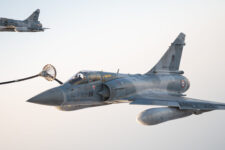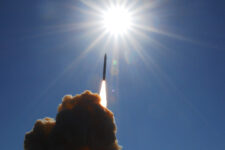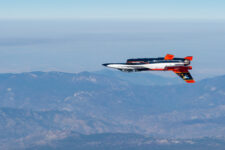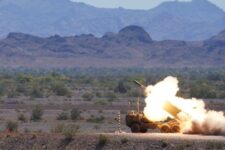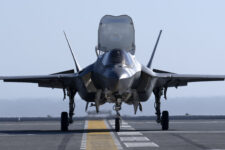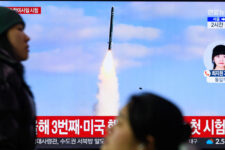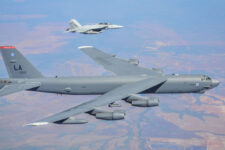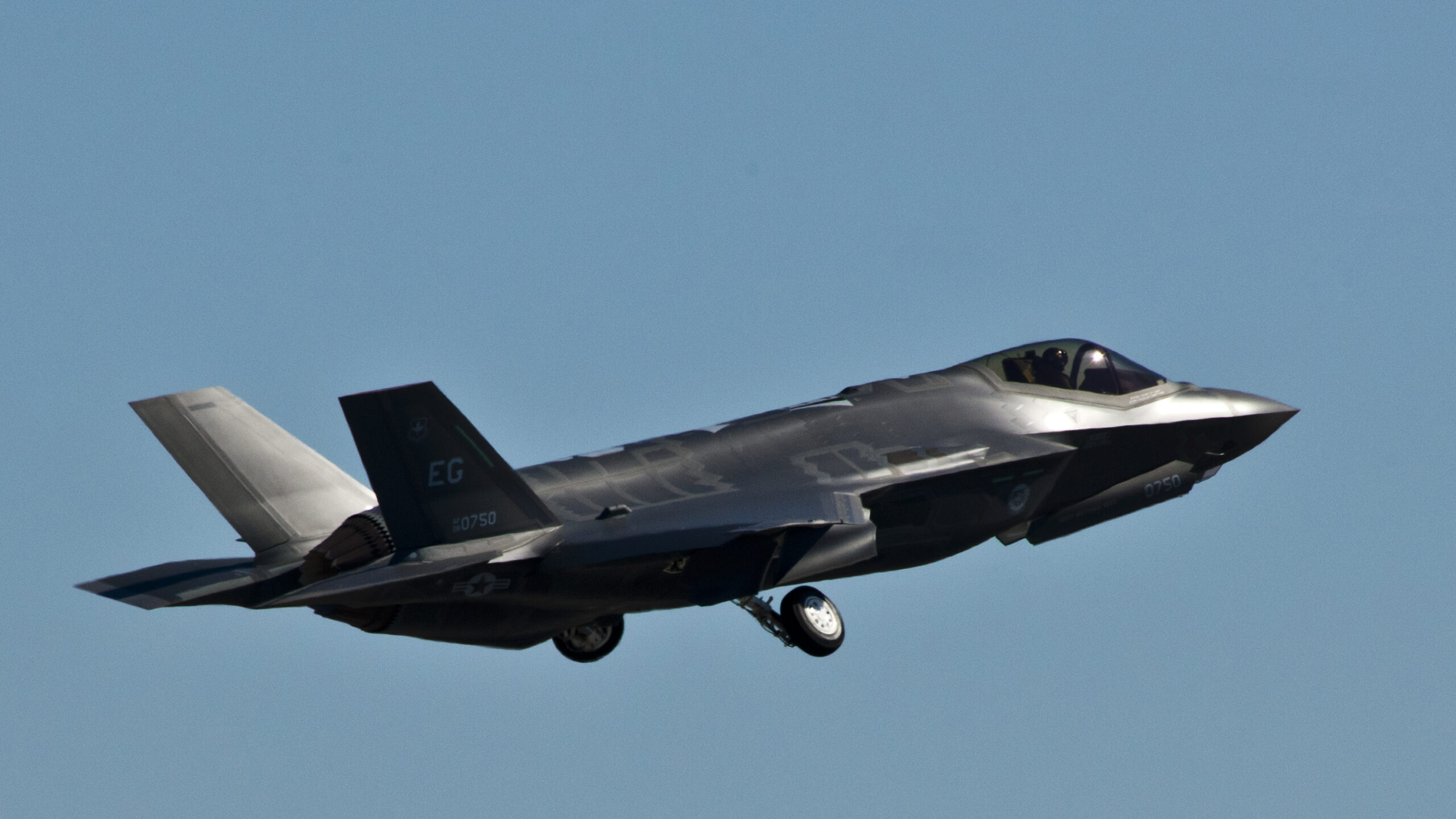
A F-35A Lightning II lifts off for its first training sortie at Eglin Air Force Base, Fla. (US Air Force)
BELFAST — Germany has officially joined the multinational F-35 Lightning II program after the country’s Federal Ministry of Defense (BMVg) signed a letter of offer and acceptance Wednesday.
On the same day, Germany’s budgetary committee approved funding for 35 of the fifth generation jets at a cost of €8.4 billion ($8.8 billion).
The new aircraft are under order to partly replace Germany’s aging Panavia Tornado fleet, alongside Eurofighter Electronic Combat Role (ECR) fighters and will be equipped with US B61 bombs to undertake NATO nuclear deterrence missions.
The BMVg added that the fighter jet will also “fight enemy targets on the ground” and be used for close air support missions.
Acquisition of the F-35 represents an extraordinary turnaround in fortune for F-35 maker Lockheed Martin, which had been ruled out of consideration for the Tornado replacement program in 2019, only to be selected by Berlin in March 2022. At that time the new German government decided, in dramatic fashion, to end decades of defense procurement underfunding and instead focus on delivery of a €100 billion ($107 billion) special arms fund to counter Russian aggression following February’s Ukraine war.
But as Breaking Defense previously reported, signs of potential trouble may already shadow the F-35 order after a BMVg report that revealed risks of delays and increased costs in the future. The program also faces difficulties with regard to sourcing an adequate number of contractors to perform upgrade work at the Büchel Air Base, where the F-35 fleet is expected to be located.
“The F-35 opens another chapter of supporting Germany’s interests for national and European security,” Lockheed Martin said in a statement welcoming the German government’s announcement. “By the 2030s, it is expected that over 550 F-35s will work together from more than 10 European countries, including two full U.S. F-35 squadrons at RAF Lakenheath [Suffolk, England].” In addition to Germany, Finland and Switzerland, currently working through the F-35 procurement process.
The company also noted that the procurement contract with Germany includes supply of engines, mission equipment, spare parts, logistic support, training and armaments. Besides approval of the F-35 order, the German budgetary committee also awarded funding for encrypted radios and assault rifles.
After long held political resistance to arms exports, Germany has since reversed course to supply weapons to Ukraine including IRIS-T Surface-Launched Missiles (SLM), unmanned surface vessels, reconnaissance drones, 60,000 ammunition rounds (40mm), 50 DINGO Mine Resistant Ambush Protected (MRAP) vehicles and Mi-24 helicopter spare parts.
L3Harris unveils command, control software envisioned for 1,000s of drones
Company executives said current demonstrations have successfully managed a number of drones in the “double digits,” and they expect that number to soon exceed 100.



